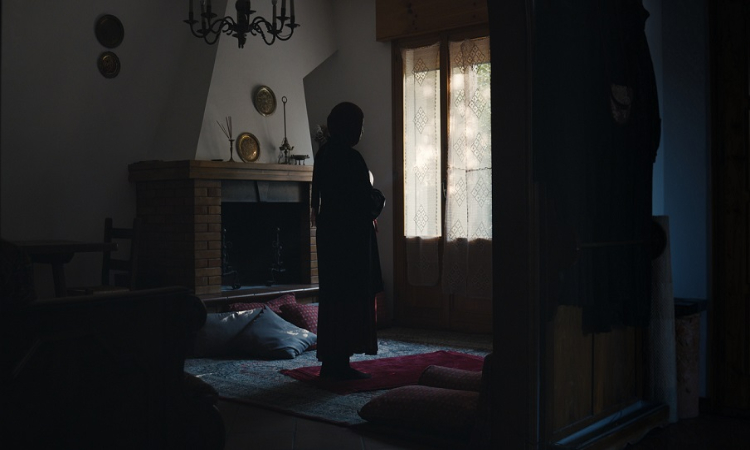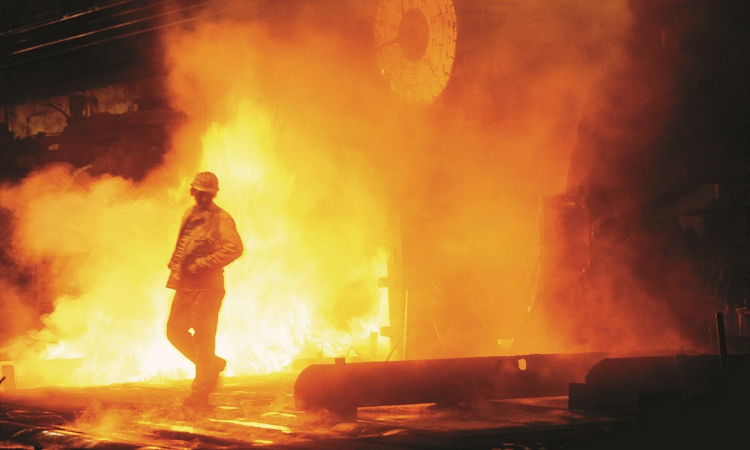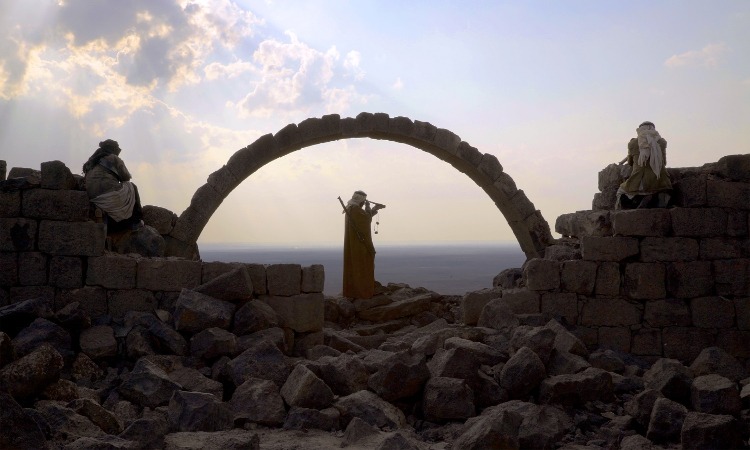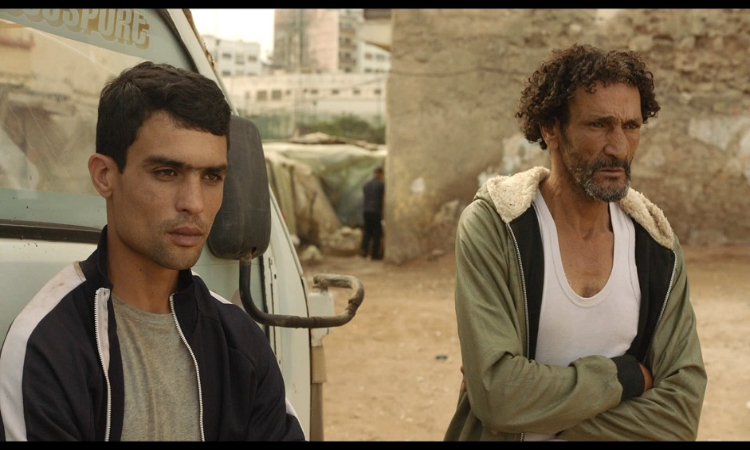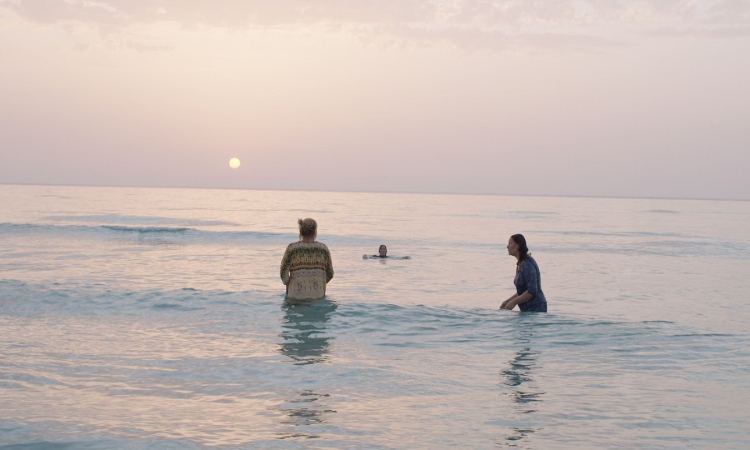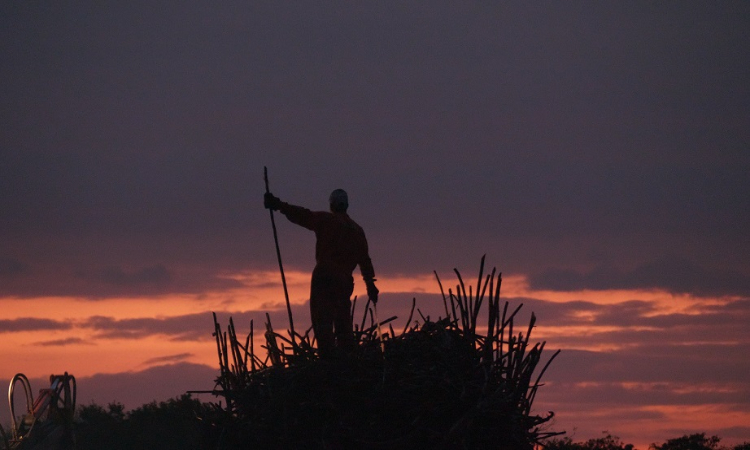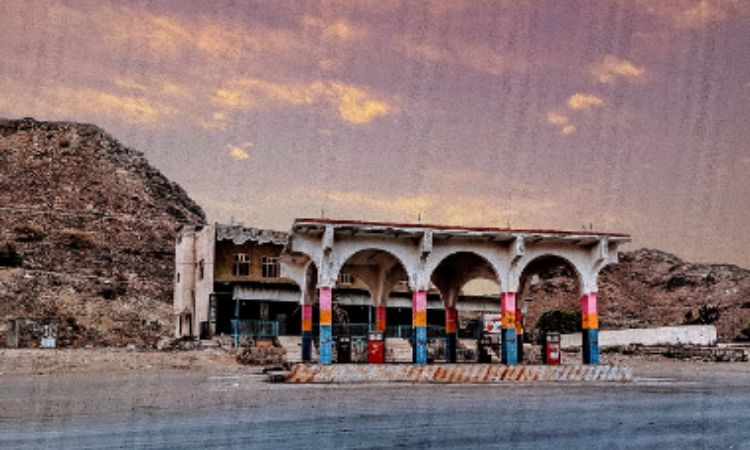44 films, including feature narratives, documentaries, web series and shorts have been selected for the Doha Film Institute’s Qumra 2023, the Institute’s annual industry incubator event. Qumra 2023 will offer networking and development opportunities for the selected projects from 23 countries as part of Qumra’s mission to accelerate the success of filmmakers from the region and beyond and prepare them to bring their projects to audiences around the world.
Talents associated with the selected projects will take part in Qumra’s innovative hybrid event, participating in mentorship and networking activities in-person from March 10 to 15 and online from March 19 to 21, 2023. Of 44 projects, 29 are recipients of the Doha Film Institute’s Grants programme, and five are supported through the Qatari Film Fund. 24 projects have participated in DFI Training Programmes (Hezayah Scriptwriting lab, Producers Lab, Shorts Script Lab, Doc Lab with Rithy Panh, Series Lab and First Cut Lab). In all, eight feature projects are in development, five in production and 13 in post-production, 7 in Qumra Series, and 11 are in Qumra Shorts.
Qumra 2023 features 13 projects by Qatar-based talent, including seven by Qatari nationals. Highlighting the evolution of series, Qumra 2023 will nurture seven series projects by emerging talent.
Fatma Hassan Alremaihi, Chief Executive Officer of the Doha Film Institute said the projects being nurtured at Qumra 2023 have been selected from a diverse pool of films from across the world supported by the Institute. “Qumra is creating a new space for independent and new voices in cinema, and we are impressed by the diversity and depth of the original themes that emerging filmmakers are exploring. Our goal is to support independent voices in cinema in their script-to-screen journey. We are honoured to have the support of the acclaimed film luminaries and industry experts who provide mentoring and guidance for the selected projects. The skills filmmakers learn at Qumra will be invaluable in their journey, not only in connecting their projects to global audiences but in gaining exceptional insights into the craft of filmmaking.”
Projects in development participate in group and individual sessions with Qumra Masters and industry mentors in script consulting, legal, sales, marketing and co-production advice, along with individual matchmaking sessions for projects in post-production, which are presented in a series of closed rough-cut screenings to leading festival programmers, broadcasters, market representatives, sales agents and distributors.
Film projects at Qumra 2023 come from varied geographies, from Algeria to Indonesia and Mexico to Mongolia. The talents will take part in group and individual consultation sessions with Qumra Masters and industry mentors in script development, legal, sales, marketing, and co-production. Films in post-production will benefit from individual matchmaking and private rough-cut screenings with leading international festival programmers, broadcasters, market representatives, sales agents and distributors, providing opportunities for wide exhibition and distribution.
Multi-award-winning British playwright, screenwriter, and director Sir Christopher Hampton (The Father, Dangerous Liaisons, Atonement); veteran film, TV and theatre producer David Parfitt (The Father, Shakespeare in Love, My Week with Marilyn, Loving Vincent); visionary costume designer Jacqueline West (Dune, The Revenant, The Curious Case of Benjamin Button); Award-winning Scottish filmmaker Lynne Ramsay (We Need to Talk About Kevin, You Were Never Really Here, Ratcatcher); and critically acclaimed British filmmaker Michael Winterbottom (The Road to Guantanamo, A Mighty Heart, Welcome to Sarajevo) will guide the filmmakers as Qumra Masters, providing one-to-one mentoring sessions.
2023 Qumra Projects:
Development- Feature Narrative
- Perfumed with Mint (Egypt, France, Qatar, Brazil) by Emmy Award-winning cinematographer Muhammed Hamdy is about old friends who reunite in a nightmare where mint sprouts out of their bodies. Relentlessly chased by ruthless shadows, will the companions escape the maze, or will they endlessly hide in empty streets filled with memories?
- The Other Wife (France, Qatar, Algeria)(working title) by Meriem Mesraoua follows Salima, who adopts extreme measures to save the illusory refuge of her marriage, and is confronted with the fragility of her long-preserved image.
- El Bastardiya - Once Upon A Time In Tripoli (Libya, Egypt, France, Qatar) by Abdullah Al-Ghaly is about three friends trying to survive in Tripoli, where violence is the rule of the land.
- Weedestine (Palestine, Jordan, Qatar, KSA ) by Said Zagha is about Abbas, a self-righteous, middle-aged car mechanic living in Palestine’s lawless ‘Area-C’, where marijuana cultivation is thriving, who will do anything to avenge his older son’s death.
In-Production- Feature Narrative
- Thank You for Banking with Us! (Germany, Palestine, Qatar) by Laila Abbas, about two bickering and poor sisters who try to overcome their differences in order to beat the system. They successfully concoct a scheme and finally get a chance to start over.
- Sink (Jordan, France, Sweden, Qatar) by Zain Duraie is about Nadia, whose life begins to slowly change when she finds herself sinking into her teenage son’s undiagnosed mental illness.
- The Station (Yemen, Jordan, France, The Netherlands, Qatar) by Sara Ishaq is about Layal, who runs a women-only petrol station in a gender-segregated, war-torn village in Ye to shield her 12-year-old brother from recruitment.
Post-Production - Feature Narrative
- Brief History of a Family (China, Denmark, France, Qatar) by Jianjie Lin is about the fate of a middle-class family who becomes intertwined with a mysterious new friend of their only son.
- If Only I Could Hibernate (Mongolia, France, Switzerland, Qatar) by Zoljargal Purevdash is about a poor but prideful teenager who is determined to win a physics scholarship.
- Hounds (France, Morocco, Belgium, Qatar) by Kamal Lazraq is set in the working-class suburbs of Casablanca, where father and son Hassan and Issam, struggle to survive from day to day.
- Tiger Stripes (Malaysia, Taiwan, Singapore, France, Germany, The Netherlands, Indonesia, Qatar) directed by Amanda Nell Eu is about a girl who discovers a terrifying secret about her physical self.
- Backstage (Morocco, Tunisia, Belgium, France) by Afef Ben Mahmoud and Khalil Benkirane is about Aida, a member of a contemporary dance troupe touring Morocco, who provokes Hedi during a performance triggering a series of eventsy.
- Dead Dog (Lebanon, France, Qatar) by Sarah Francis, is about a middle-aged couple faces the dysfunctional status of their relationship and their inability to break the cycle they’ve become trapped in.
- Motherhood (Tunisia, France, Canada, Qatar) by Meryam Joobeur is about a mother who blinds herself to the darkness in her son’s soul. Through her eyes, we see how an individual’s inner darkness can emanate outward to consume an entire community.
Development - Feature Documentary
- Souraya Mon Amour [working title] (Lebanon, Qatar) by Nicolas Khoury is an introspection of Souraya Baghdadi through her relationship with her deceased husband, Maroun Baghdadi.
- The Woman I Never Called Mum (Algeria, France, Qatar) by Sabrina Adiri Chemloul is about Fatima, 73, who lives alone in Oran, Algeria, and has never done the right thing.
- Fouledh (Tunisia, France, Luxembourg, Qatar) by Mehdi Hmili and Abdallah Chamekh, is set in the largest steel factory in Tunisia, where two workers who suffer from psychological and physical disorders are haunted by the loss of their colleague.
- The Myth of Mahmoud (Palestine, USA, Qatar) by Mayar Hamdan is about Mahmoud Said, a Palestinian man who died at 93 years old after attempting to build a home.
In-Production- Feature Documentary
- West of May (Lebanon, France, Qatar) by Sarah Srage is a family chronicle following the fate of a fishing family in the heart of a working-class neighbourhood in Beirut. Behind the affection that unites this home, it tells of the fractures that run through contemporary Lebanese society.
- Women of My Life (Iraq, Sweden, Qatar) by Zahraa Ghandour is about the filmmaker’s search for her missing childhood friend, a journey that unfolds secret worlds of abuse and violence against women across Iraq.
Post-Production - Feature Documentary
- Bye Bye Tiberias (France, Palestine, Belgium, Qatar) by Lina Soualem is about Palestinian actress Hiam Abbass, who left her native village Deir Hanna in Galilee 30 years ago to follow her acting dream in France. Her daughter Lina questions her mother’s bold choices and how the women in her family, whom she left behind, have influenced her life.
- Machtat (Tunisia, Lebanon, France, Qatar) by Sonia Ben Slama chronicles the lives of Fatma and her daughters, Najeh and Waffeh, who are wedding musicians in Mahdia, Tunisia. The sisters follow opposite paths—while Najeh, divorced, tries to remarry to escape the authority of her brothers, Waffeh wishes to divorce her violent husband.
- After the Bridge (Italy, Qatar) directed by Marzia Toscano is about Valeria Collina, whose life is shaken by the death of her son Youssef, one of the three jihadist terrorists who killed eight people on London Bridge. Valeria finds herself mourning and having to put her life back together.
- Monisme (Indonesia, Qatar) by Riar Rizaldi is about several professional actors and non-actor professionals who portray a dynamic of human-nature relationships in one of the most active stratovolcanoes in the world, Mount Merapi.
- River of Toads (Mexico, Qatar) by Juan Carlos Núñez Chavarría is a sensory documentary about a family of healers who maintain the ancient practice of the cult of death in a small town in Veracruz, Mexico.
- The Forgotten [Working Title] (Palestine, Qatar, UAE) by Ghada Terawi is about the life of Kozo, a Japanese freedom fighter and member of the Japanese Red Army, who gave up his life in Japan to join the Palestinian Liberation Movement.
Qumra Series
- Land of Nairi (Armenia) by Ovsanna Gevorgyan depicts the ill-managed demolition of a chemical plant which floods Nairi with a purple liquid that puts the town's young people to sleep.
- Miara (Morocco, Qatar) by Talal Selhami and Jawad Lahlou is set in 8th Century, North Africa. When her father is brutally murdered, a young Berberian woman discovers he was a fallen Viking King.
- Nguya (Democratic Republic of the Congo, Belgium) by Michiel Robberecht and Precy Numbi is about Nia whose life is turned upside down when she meets Nguya—a superhero robot born in the coltan mines of Eastern Congo.
- Status Quo (Lebanon, Qatar, Spain, USA) by Gilbert Karam and Hiba Louis , Beirut heats up as three unsuspecting girlfriends are forced to unite against the corrupt regime after they mistakenly kidnap a powerful politician’s son.
- From the Mountain (Syria, Jordan) by Faisal Attrache is about a fiery young farmer who rises to become his community’s hero in the Arab nationalist fight for independence against the Ottomans.
- The House that my Mother Built (Sudan) by Alyaa Musa follows eight women from across Sudan who share their astonishing encounters with the inhabitants of the households they take refuge in during Sudan’s revolution 2019–2022.
- Let The Earth Burn (France, Qatar) by Sofia Alaoui, despite getting excellent results, fresh police academy graduate Kenza is posted to a remote station in a small town in the Atlas mountains.
Qumra Shorts
- Bel Falstini (Lebanon, Qatar) by Obada Jarbi is about Palestinian refugees living in the Shatila Refugee Camp in Lebanon. It focuses on the history of its people, the burden of their hope, and how the tension created by the two affects the lives of the different generations of Palestinians living in the camp.
- 17-0: The Untold Story [Working Title] (Qatar) by Fatma Al-Ghanim is about the captain of the first-ever Qatari Women’s Football Team, who grapples with the painful hidden costs that come with being a part of the first generation of women to break through cultural taboos in pursuit of their footballing passion and dreams.
- This I Remember (Qatar, Lebanon) by Alessandra El Chanti is about a young woman who pieces together her memories of the city she was never able to call her home—Beirut.
- I Wished for Solitude (Qatar) by Hamad Alfayhani is about a man losing his face, who decides to become a recluse and has his final conversations with the people in his life
- Missed Connections [Working Title] (Qatar) by Dhoha Abdelsattar is about a married couple repeatedly trying and failing to connect emotionally, ultimately finding themselves stuck in a cycle of quiet conflict.
- Holy Feet (USA, Egypt, Qatar) by Karim Emara is about Iman who is forced into a difficult decision to save her ailing husband—using her glamorous feet as a means to secure the funds needed for his treatment.
- Alaqiq: Darkness of Media (Qatar) by Mohammed A. Al-Suwaidi and Kummam Al Maadeed, In a city warped by social media and technology and after a brutal attack against his grandfather—Aqiq discovers he is the first in a new generation of a superhero group called “The Guardians”.
- Continuity (Working Title) (Qatar) by Nadia Al-Khater, upon starting a new editing project, a young woman discovers that she is editing her own life.
- Beauty in Solace (Qatar) by Ali Al-Hajri, when a man is faced with his own mortality, images from his past force him to understand his state of melancholy and his need to release it.
- Gihan [working title] (Egypt, Qatar) by Hadeer Omar is a performative and self-discovery journey for a jewellery designer taking control of her body and spirituality through movement and introspection while becoming an actress.
- Villa 187 (Sudan, Qatar) by Eiman Mirghani documents her family’s house—and the memories that made it a home—for over 30 years driven by the cancellation of her family’s residency in Qatar.



